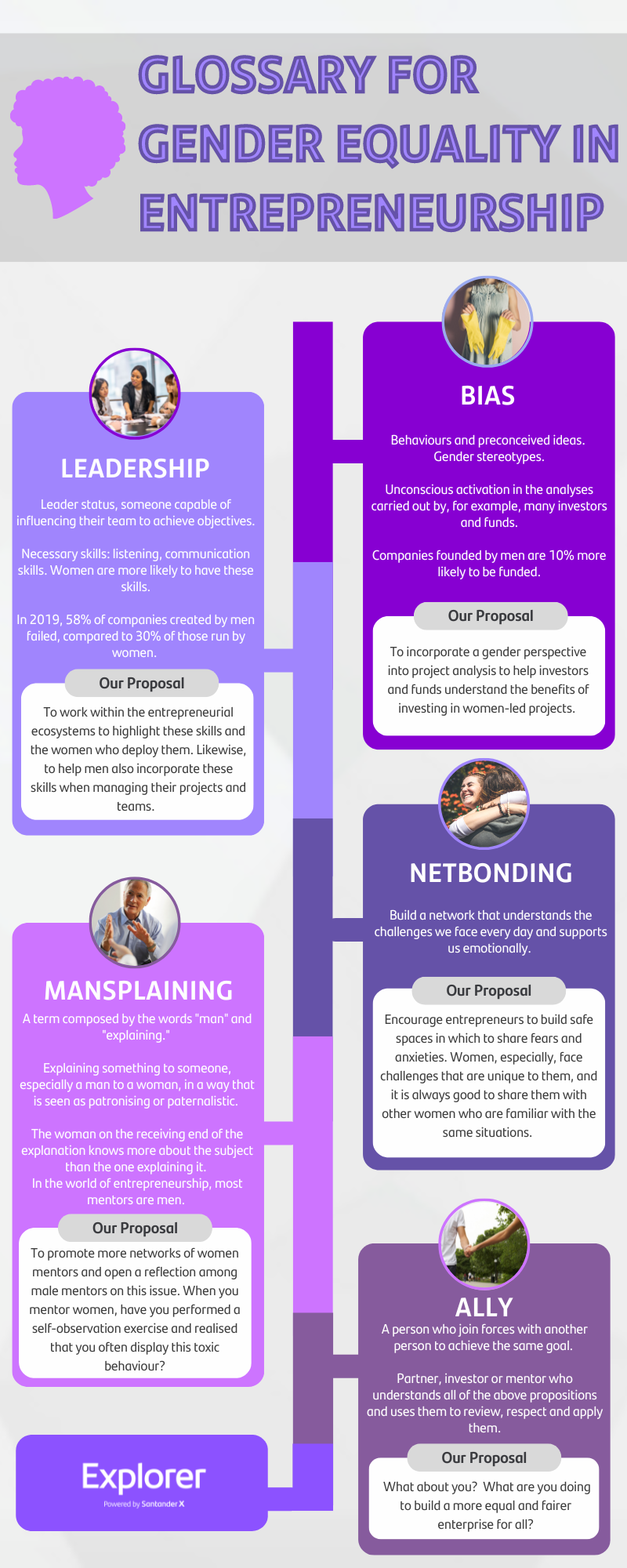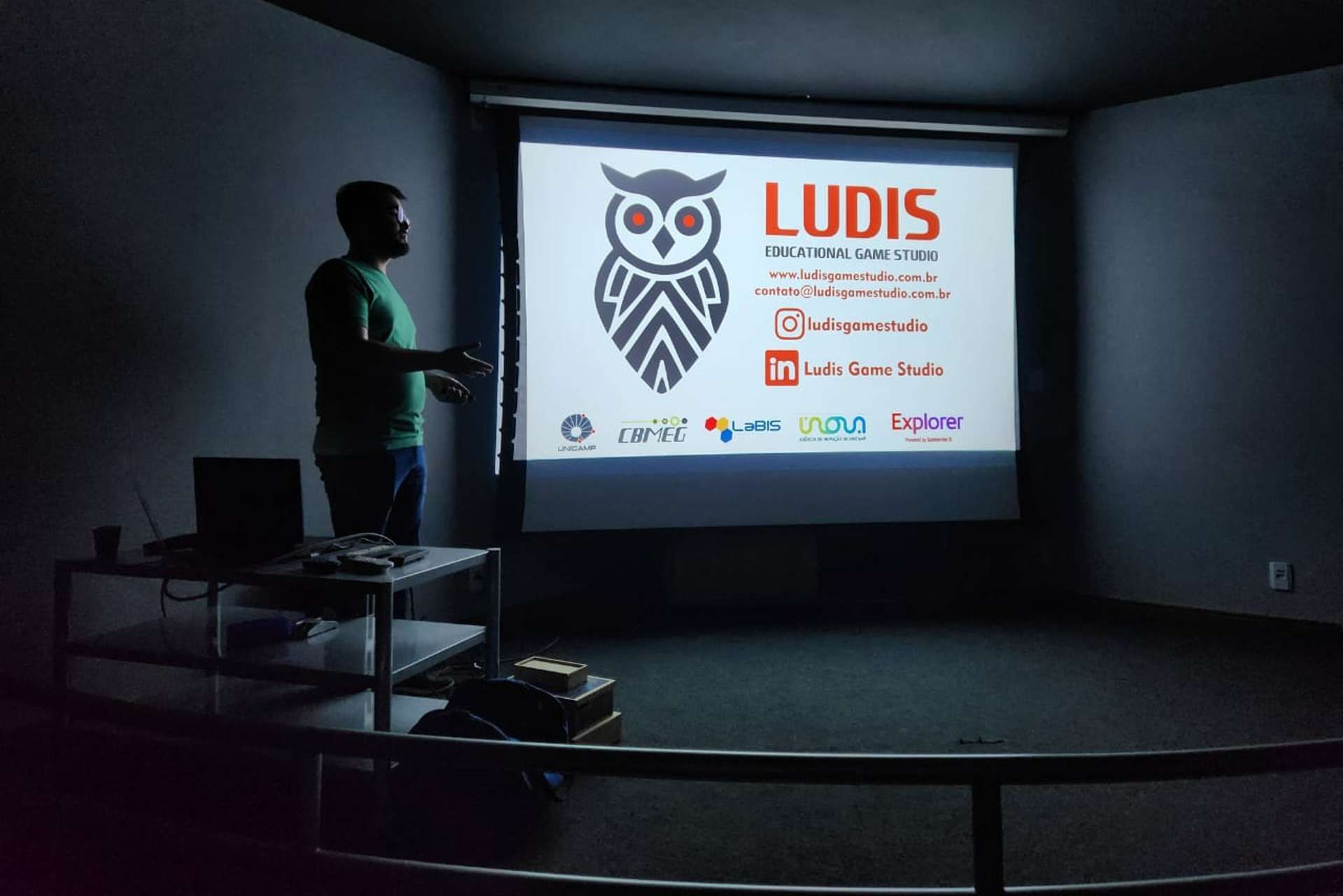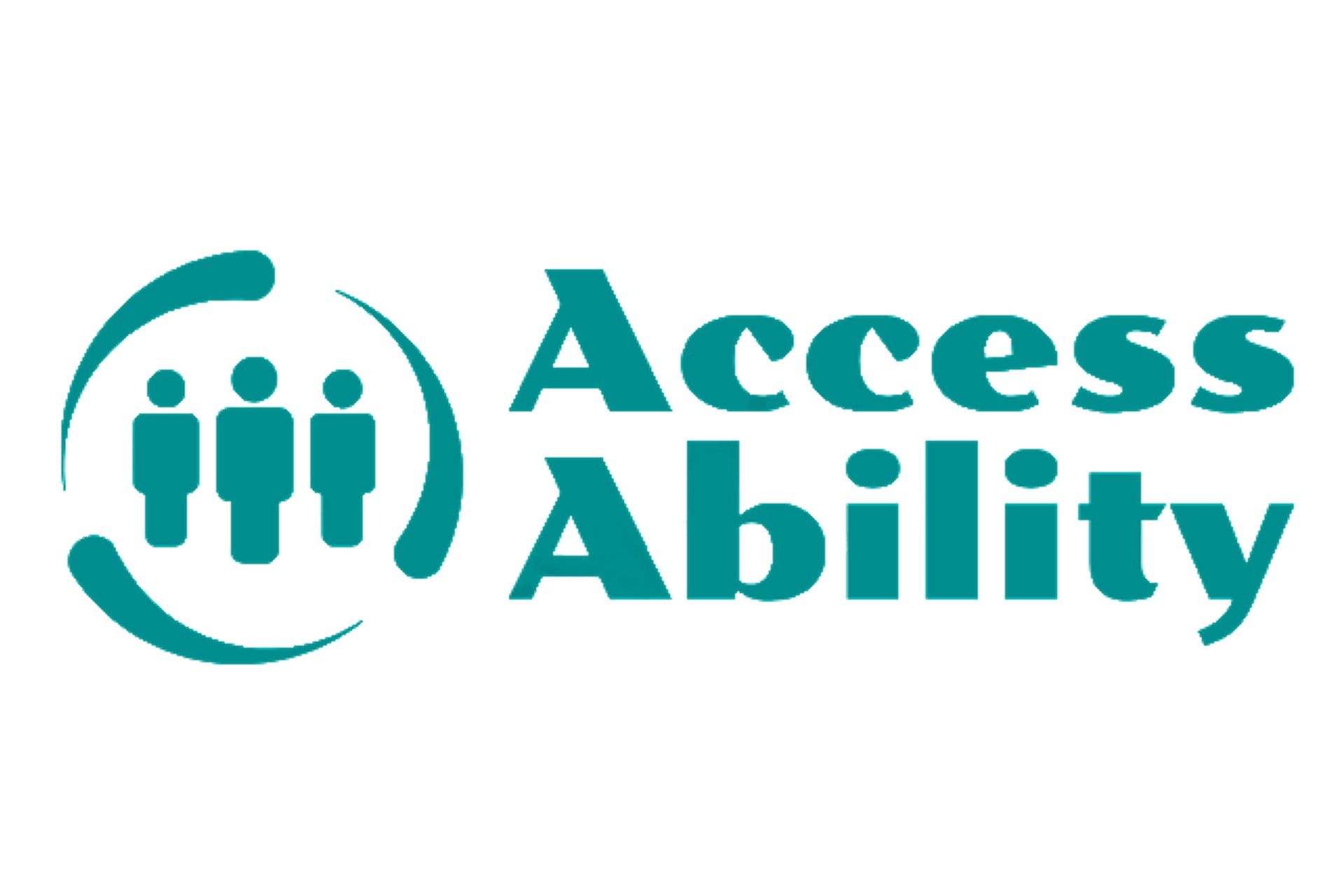11/18/2022
Soft skills
7 minutes of reading
Gender Equality for Entrepreneurship 101
Authors
- Santander X Explorer
Categories

Feminism is a movement, an agenda, and an economic theory. Above all, it is a way of observing and navigating the world from an unequivocal place: equality. What happens when we apply this perspective to entrepreneurship?
Although at Santander X Explorer we work from this point of view on our day-to-day, we believe that a date like International Women’s Entrepreneurship Day makes it visible and tries to explain the challenges faced by the participants in the programme—among other women entrepreneurs. What are the main inequalities women continue to encounter in entrepreneurship? Look at this mini-glossary we have prepared and the solutions we propose to build more egalitarian entrepreneurial ecosystems.
Leadership
It is the condition of a leader capable of influencing their team to achieve objectives. Curiously, the skills needed to lead (listening, communication skills, etc.) are more common among female entrepreneurs and, most probably, one of the reasons why projects led by women have a higher survival rate. For example, in 2019, 58% of companies created by men failed, compared to 30% of those led by women.
Our Proposal: To work within the entrepreneurial ecosystems to highlight these skills and the women who deploy them. Likewise, to help men also incorporate these skills when managing their projects and teams.
Biases
Preconceived ideas and behaviours. These are known as gender stereotypes, which are activated unconsciously in the analyses carried out, for example, by many investors and funds without even being aware of it.
Inequality between men and women in entrepreneurship is manifested objectively, such as that women’s projects receive less investment than those led by men. This is partly due to those biases that place women at a disadvantage simply because they are women. According to “Mujeres Avenir por la Conexión,” companies founded by men are 10% more likely to be funded (most venture capital is in male hands, and almost all the money from big money goes to male-led companies). Last year, women-only ventures raised 61% of their capital from equity and 15% from private equity, supplemented by public funds and FFF. Companies comprising only men, formed their capital with 48% equity and 32% private funds; the remaining 20% corresponded to public funds (4%) and FFF.
Our Proposal: To incorporate a gender perspective into project analysis to help investors and funds understand the benefits of investing in women-led projects.
Mansplaining
This English neologism is composed of the words man (man) and explaining. Its definition consists of explaining something to someone, especially a man to a woman, in a way that is considered condescending or paternalistic. It does not assume that the woman receiving the explanation knows more about the subject than the one explaining it. In the entrepreneurship world, most mentors are men.
Our Proposal: To promote more networks of women mentors and open a reflection among male mentors on this issue. When you mentor women, have you performed a self-observation exercise and realised that you often display this toxic behaviour? This is a significant step, the first step in trying to change and contribute to building safer and more egalitarian entrepreneurship ecosystems. Help other mentors to recognise and check themselves.
Netbonding
This term, coined by Patricia Araque, Executive Director of Sanatnder X Explorer, tries to give a name to a practice that encourages us to build a network of contacts beyond business interests. In entrepreneurship, surrounding yourself with a network that understands the challenges we face every day and supports us emotionally is key to helping us move forward.
Our Proposal: To surround yourself with other entrepreneurs who understand you, help you take care of yourself emotionally, and build safe spaces where you can share your fears and anxieties. If you are a woman, also create your network of female entrepreneurs: there are still challenges that only we face, and it is always good to share them with other female colleagues who have gone through or are going through the same situations.
Ally
A person who joins with another to achieve the same goal. When we apply the feminist view to entrepreneurship, we define it as the partner, investor, or mentor who understands all the proposals we have made above, uses them to review themselves, respects them, and applies them.
What are you doing to build A more equal and fairer entrepreneurship for everyone? We would love to hear about your experiences and share them with the Santander X Explorer community as good practices.
And if you want to share all this, here you have this infographic!

Sources: **
**
**
**
**
**
**



